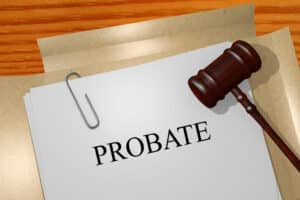
If the deceased person had a will, the will must be filed with the probate court in the county where the deceased person lived at the time of their death
The probate court will appoint an executor, who is responsible for collecting the deceased person’s assets, paying their debts and taxes, and distributing the remaining assets to the beneficiaries named in the will. If the deceased person did not have a will, the court will appoint an administrator to handle the estate.
The probate process can be complex and time-consuming, and it is often advisable to seek the assistance of a probate attorney. If the deceased person’s estate is small, or if they had a trust in place, it may be possible to avoid probate altogether.
Practice Areas
Estate Planning
Estate planning is the process of establishing a Trust, Will, Durable Power of Attorney, and other related documents during your lifetime.
Estate Administration
Probate
Probate is the legal proceeding supervised by the Superior Court used to transfer title to assets when a person is deceased.
Estate Litigation

Advanced Estate Planning
Families with substantial estates require additional strategies beyond a typical Estate Plan to reduce and offset Estate Tax liabilities.

Conservatorship
Our Locations
The quickest way to get assistance is to contact us directly at 310-316-2400 or by emailing us at info@ledwitzlaw.com.
Life Events

New Families

Nearing Retirement

Recent Loss
Recent Blogs
MISTAKEN IDEAS REGARDING ESTATE PLANNING
There is a great deal of confusion and mythology regarding estate planning. It’s a subject that healthy, busy people really don’t want to think about. Understandably, the thought of suddenly becoming unable to function (due to disease or a catastrophic illness) and...
WHY “DO IT YOURSELF/FILL IN THE BLANK” WILLS & TRUSTS OFTEN RESULT IN DISASTER
WHY “DO IT YOURSELF/FILL IN THE BLANK” WILLS & TRUSTS OFTEN RESULT IN DISASTER Retaining the services and expertise of an attorney who can assist you in preparing a smart estate plan requires a serious investment of time and money. The benefits (however) far...
What is the gross value of the estate?
The gross value of the estate is the fair market value of the estate before the debts are paid. For example, a $200,00 home is left to a child by a parent in a will. As the estate goes through the probate process, there will be fees of approximately $8,000 in...
Client Reviews
As Seen in...

Awards, Certifications and Accolades






